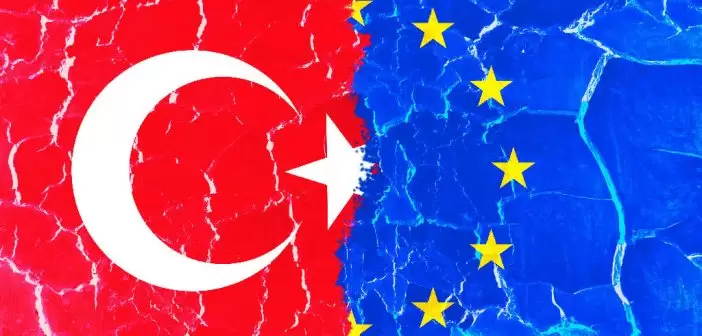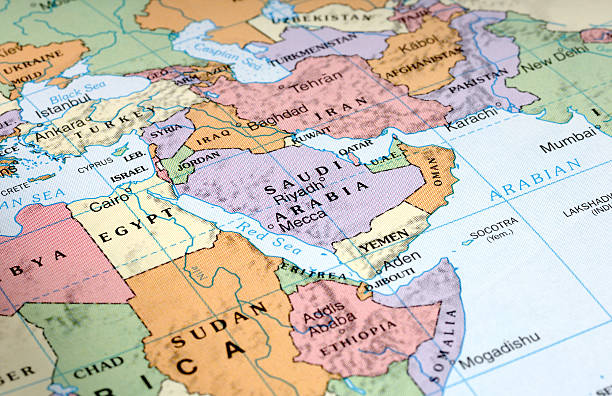
Europe’s Time of Troubles
by Ali Tuygan
For centuries Europe remained the world’s main battleground. But the number of casualties of the two world wars, occurring within four decades, dwarfed the losses and devastation of the past conflicts. And as the Second World War ended, the Iron Curtain descended across Europe.
On April 4 and May 5, 1949, respectively, NATO and the Council of Europe were established. A year later, on May 9, 1950, French Foreign Minister Robert Schuman proposed the creation of a European Coal and Steel Community which brought together Germany, France, Italy, the Netherlands, Belgium, and Luxembourg in 1952. On March 25, 1957, they created the European Economic Community (EEC). On January 1, 1973, the UK joined the EEC under the leadership of Conservative Prime Minister Edward Heath. On February 7, 1992, the Maastricht Treaty created the European Union. Those years were a remarkable period of economic growth and social progress in Western. Despite the withdrawal of France from NATO’s military structure in 1966, the transatlantic relationship was strong. Looking back at those times, one cannot but think of Jean Monnet, Presidents Charles de Gaulle, François Mitterrand, Chancellors Konrad Adenauer, Willy Brandt, and Helmut Schmidt. Following the dissolution of the Soviet Union, EU membership went up to twenty-seven.
In the last decade, however, the broad picture in Europe began to change. A divide emerged between the ruling elites and the masses. The rich kept getting richer diminishing household confidence in governments. Far-right groups and parties emerged as contenders for power. Political stability could not be taken for granted. Leadership questions started to come up. Migration from former colonies and war zones in the Middle East where the West bears much responsibility for the ongoing turmoil became a problem. And Brexit entered into force on February 1, 2020. Furthermore, on the other side of the Atlantic, the Trump presidency and the assault on the US Capitol led to questions about American democracy. Thus, democracy’s decline became a current topic. West’s public discourse on democracy lost its appeal. Some started to question transatlantic solidarity.
In brief, even before Russia invaded Ukraine, the EU faced domestic and transatlantic challenges. But in “normal times” these were somewhat manageable.
In confronting the Russian invasion, the US, the EU, and NATO have displayed what many call “unprecedented solidarity”. The President of the European Commission and the President of the European Council have become spokespersons of transatlantic criticism of Russia. EU member states have opened their borders to welcome Ukrainian refugees. They have provided Kyiv with huge military support enabling it to stand up against the Russian attacks and recover territory. And they have imposed extensive sanctions on Russia. However, European political developments like the government crisis in the UK and a far-right leader coming to power in Italy show that the war in Ukraine beyond a shadow of a doubt is now Europe’s top but not the only problem. Moreover, dealing with the impact of the war on the global economy particularly the energy sector, and investing heavily in defense are becoming major challenges as Europe enters what is likely to be a cold winter. People are not happy.
Reportedly, German investigators have determined that the series of explosions along Nord Stream pipelines on September 26 were likely caused by sabotage. Last week, the EU summit in Brussels condemned the acts of sabotage against critical infrastructure such as the Nord Stream gas pipelines and promised a united and determined response. President Putin said that the responsibility for the situation should be placed squarely on the West, which “has actually begun to destroy the pan-European energy infrastructure.” According to some observers, these explosions and the Crimea bridge blast are raising the risks of hybrid warfare extending to subsea communication cables in the Atlantic.
During such challenging times transatlantic solidarity can only be ensured through close, continuous, and meaningful political dialogue. Last week, during her joint press conference with Secretary Blinken in Washington, Foreign Minister Colonna said, “We find strength and efficiency in our unity.” [i] But the way the US withdrew from Afghanistan without adequate consultation was a disappointment for Europe. And now there is another big question: How would Europe’s relationship with China evolve? How would the EU and the US ensure harmony in their approach to Beijing?
European foreign policy initiatives such as the first meeting of the European Political Community could be useful for Europe-wide dialogue and “keeping partners on board”, but the real challenges lie elsewhere.
The only good news of the past week was the holding of a telephone call between US Defense Secretary Lloyd Austin and Russian Defense Minister Sergei Shoigu. The last phone call between Foreign Minister Lavrov and Secretary of State Antony Blinken was on July 29. Hopefully, this is a step to contain the war if not achieve peace. Because the war in Ukraine will have no victors. The future discussion will only be about which side lost more. It is past time to declare a ceasefire.
As for Türkiye, our democratic decline, economic downturn, and state of confusion continue. But most appallingly, a leading member of the ruling Justice and Development Party (AKP), in yet another display of lack of appreciation for Ataturk’s reforms, reportedly said last week that the world’s most radical cultural revolution in the world was lived in Türkiye; the French Revolution knocked down everything but spared the language; Mao’s was also a cultural revolution but again did not touch the Chinese language; but as a cultural revolution, the Republic has destroyed our vocabulary, our alphabet, our language, thus all patterns of thinking; with today’s Turkish we can talk, but we cannot produce ideas.
His words must have disappointed the Party leaders who claim to come up with bright new ideas every day across the spectrum, from economic policy to foreign relations. I worry about our place in the European Political Community.
————————————————————————————————–









